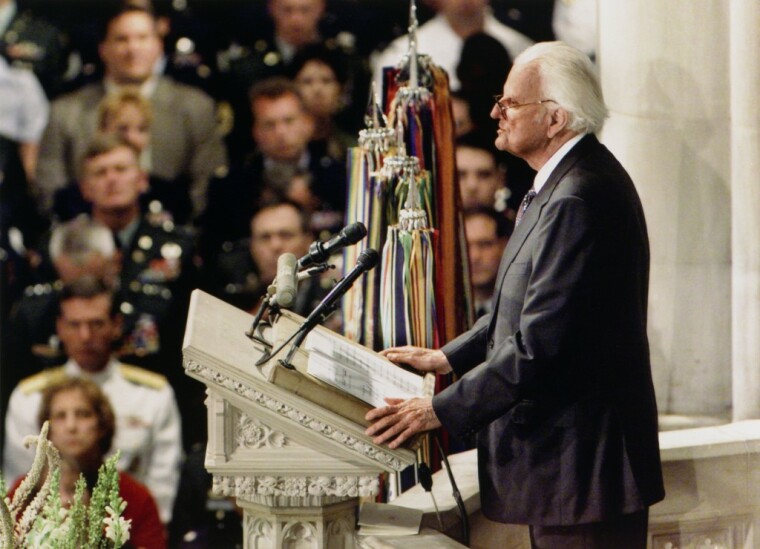Out of 9/11 ashes came Billy Graham Rapid Response Teams to mobilize volunteers to offer comfort, hope

CHARLOTTE, N.C. (Christian Examiner) – Chad Hammond, a director at the Billy Graham Evangelistic Association (BGEA), had only recently become an employee when he was deployed to Ground Zero just a few days after Sept. 11 to minister to those affected by the national tragedy.
When he reached the ruined towers, the destruction was more extensive than he imagined, and people's bodies were still being recovered. "It was very humbling," Hammond said. "I remember not wanting to disturb or touch anything. You treated that place as a kind of holy site."
In what would form the foundation of the BGEA's Rapid Response Team, Hammond worked with local churches to help pastors, to establish a crisis phone center, to offer grief counseling for walk-ins, and mobilize volunteers to come and serve in the area.
"As Christians, we felt that we had a mission to bring the hope of Christ to the people of New York City," Hammond said in a BGEA article on the ministry's history.
WORDS OF HOPE
Billy Graham explained the nation's need for hope in the sermon he gave from the Washington National Cathedral on the Friday following the terrorist attacks.
"I have been asked hundreds of times why God allows tragedy and suffering," Graham said. "I have to confess that I do not know the answer. I have to accept, by faith, that God is sovereign, and that He is a God of love and mercy and compassion in the midst of suffering."
BGEA offers a daylong seminar called Sharing Hope in Crisis to train Christians, including pastors, counselors, and missionaries, on how to share the gospel appropriately and compassionately to people who are suffering.
It involves acknowledging the reality of pain and evil but attests that God remains sovereign.
Graham said, "There is hope for the present because the stage, I believe, has already been set for a new spirit in our nation."
Grief and tragedy cause people to seek salvation. After Sept. 11, Hammond and other responders were amazed at peoples' longing for hope.
"There was a line to get in [to Brooklyn Tabernacle Church] and the service was packed," Hammond said. "Time Square Church in Manhattan was packed. All of the churches were."
RAPID RESPONSE TEAM
Shortly after the initial deployment of helpers, BGEA began to offer Grief in Crisis training sessions in New York City to teach others how to offer courage and hope to people who have lost.
"We did ministry for two or three years in New York City after 9/11," Hammond said.
The Rapid Response Team now consists of volunteer chaplains who are crisis-trained to offer counsel and prayer to those who are physically, emotionally, and spiritually burdened or suffering because of natural or man-made disasters.
"To me," Hammond said, "the Rapid Response Team will always be something that came out of the ashes of 9/11." It was a day that changed everyone, he said, and enabled BGEA "to develop a ministry that has been beneficial to many people all over the world."
The chaplains' training and the philosophy of the evangelism outreach program is based on sharing hope.
Since 2002, the Billy Graham Rapid Response Team has prayed with more than 226,000 people during more than 210 crises across the globe.
According to its deployment map, sites recently served include the theater shooting in Lafayette, La.; the trial of Officer Wes Kerrick in Charlotte, N.C.; flooding in Hays County, Texas; civil unrest in Ferguson, Mo.; and tornadoes in Tulsa, Okla., among many other national crises.
In his speech, Graham underscored our nation's continued need for God's promises.
"We desperately need a spiritual renewal in this country," he said, "and God has told us in His Word time after time that we need to repent of our sins and return to Him, and He will bless us in a new way."